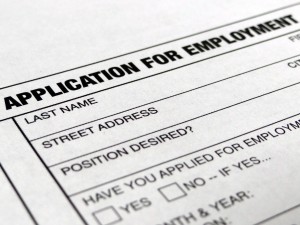California 15 Dollar Minimum Wage

California lawmakers made a deal with the state’s Governor to raise the minimum employee wage to $15 over the next six years.
Raising the minimum wage has been a talking point for unions and social groups for a long time because it has not kept up with the cost of living. To match today’s cost of living, the minimum employee wage would already be at 16 dollars per hour. Senator Elizabeth Warren (D-Mass.) told us, in 2013, that workers would receiver 22 dollars an hour if productivity was the true measurement.
 Historically, higher wages have not negatively affected job growth. Businesses will still need workers to complete tasks. The higher costs are simply passed to the consumer or absorbed by the business. There is some worry that a higher wage could lead to greater use of technology in the workplace. Some industries have tried for decades to replace cashiers or other low paid workers with machinery. As of now, they have not been able to replace interacting with a real human.
Historically, higher wages have not negatively affected job growth. Businesses will still need workers to complete tasks. The higher costs are simply passed to the consumer or absorbed by the business. There is some worry that a higher wage could lead to greater use of technology in the workplace. Some industries have tried for decades to replace cashiers or other low paid workers with machinery. As of now, they have not been able to replace interacting with a real human.
Smaller businesses can feel the squeeze if they already have tight margins. But by slowly adjusting wage rates the business can absorb the costs comfortably. California intends to raise the wages over a six-year period to soften any blow to small businesses.
States and cities that already have a higher wage also have higher rates of job growth than areas with lower wages. People at the lower-income levels tend to spend most of what they earn, and buy more goods and services in their community with higher wages; unlike higher income brackets that save heavily.
 Inflation is another worry. Experts predict an inflation jump of less than one percentage point. Since wages have been flat for so long. This slight increase could be easily offset by slightly lower profit expectations. Accepting the rise in inflation would keep currency circulating, as lower wage earners become able to spend more increasing the local tax base. In a perfect world, this should equal more funding to public works projects.
Inflation is another worry. Experts predict an inflation jump of less than one percentage point. Since wages have been flat for so long. This slight increase could be easily offset by slightly lower profit expectations. Accepting the rise in inflation would keep currency circulating, as lower wage earners become able to spend more increasing the local tax base. In a perfect world, this should equal more funding to public works projects.
In conclusion, though there will be some problems for smaller businesses adjusting to the new demands on their resources and a slight increase in inflation there will also be a lot of positives. Stagnant wages will be forced upwards, benefiting all workers, not just those at minimum wage. Cities will see an increase in business over time as there will be more money to spend.
